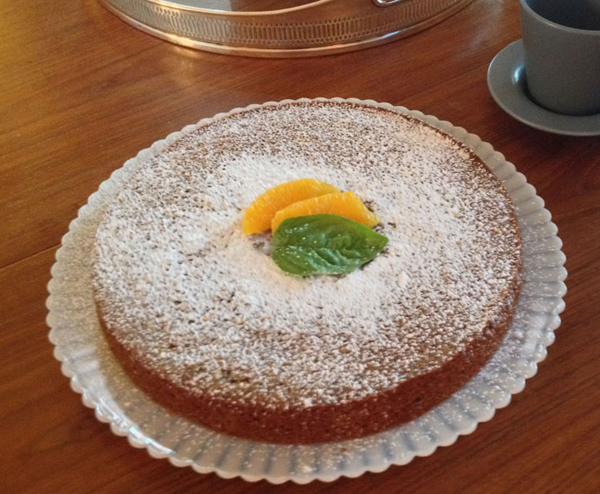Share This
My new colleagues at Oldways might be surprised to learn that I lived a double life for many years. Well, maybe that’s a bit dramatic; you see, I love to bake but don’t eat a lot of baked goods. And although I don’t have much of a sweet tooth, baking makes me happy, and I realized I was even happier when I baked for other people.
Over the years, as my interest in nutrition developed, I found myself baking less as my guilt grew – how could I travel on this journey of healthier eating and still feed my friends and family butter-laden, sugar-filled cakes and cookies?
Much to my delight, food writers and dietitians were on the same path and started to write about swapping out butter for olive oil, honey for sugar and adding whole grain flours to the mix. New avenues opened before me – beets, carrots, parsnips, even white beans and sauerkraut could be used to cut fat, sugar and calories, while adding fiber and nutrients without sacrificing flavor or texture.
Using vegetables and fruits to sweeten foods isn’t new, however. I learned that during World War II, British housewives became mighty handy in using fruits and vegetables as a substitute for processed sugar. Because of the scarcity of foods grown commercially, foods were rationed, and victory gardens flourished – in parks, in backyards, on rooftops. Sugar was rationed, and the ladies learned to use the vegetables they had grown, such as carrots and beets, to add sweetness to their dishes. Ironically – but not surprisingly – because of the lower consumption of processed sugar and having a higher percentage of fruits and vegetables in their diets, the British were actually healthier during the war than after it when the rations were lifted.
Although I love the precision of baking, and enjoy the challenge of creating a triple layer cake filled with ganache and iced with chocolate cream frosting with piped rosettes, I’ve come to appreciate a cake that is easy to make and has no pretensions other than being flavorful and healthy. As I continue to add new whole foods to my baking, I still come back to the recipe that got me started on my exploration: Olive Oil-Almond Cake with Vanilla Mascarpone, created by Melissa Clark and featured in her book “Cook This Now.” It’s a wonderful blend of almonds, buckwheat flour and orange juice. Although it’s not completely sugar-free, it’s easily adaptable to other flavors and ingredients– and wonderful with or without the mascarpone. And, yes, this is one cake I love to eat and will be sharing with my new Oldways family.
Melissa Clark’s Olive Oil-Almond Cake
Ingredients:
½ cup all-purpose flour
½ cup buckwheat flour*
½ cup finely ground blanched almonds
1-½ teaspoons baking powder
1 teaspoon kosher salt
3 large eggs, lightly beaten
¾ cup granulated sugar
½ cup extra-virgin olive oil
½ teaspoon vanilla extract
1 tablespoon freshly grated orange zest
½ cup freshly squeezed orange juice
1 vanilla bean, split in half lengthwise
2 cups marscapone cheese
1 to tablespoons confectioners’ sugar
Directions:
Preheat the oven to 350º. Grease and flour a 9-inch round cake pan or springform pan and set aside.
In a medium bowl, whisk together the all-purpose flour, buckwheat flour, ground almonds, baking powder and salt to combine.
In the bowl of an electric mixer, whisk together the eggs and granulated sugar. Add the olive oil and whisk until the mixture is lighter in color and has thickened slightly. Whisk in the vanilla and orange zest, followed by the orange juice.
Add the dry ingredients to the bowl and fold them in by hand until thoroughly combined and no lumps remain.
Pour the batter into the prepared pan, and bake until the sides of the cake begin to pull away from the pan and a tester inserted into the middle comes out clean, 30 to 45 minutes.
Allow the cake to cool for 10 minutes in the pan, then gently remove it from the pan and allow it to cool completely on a rack.
To make the mascarpone cream, use the back of a knife to scrape the seeds out of the vanilla bean halves and put them into a bowl. Add the mascarpone cheese and whisk until fluffy, then whisk in the confectioners’ sugar. Serve dollops with the cake.
*Corn meal or whole wheat pastry flour can be used as a substitute.
-Deb


Add a Comment